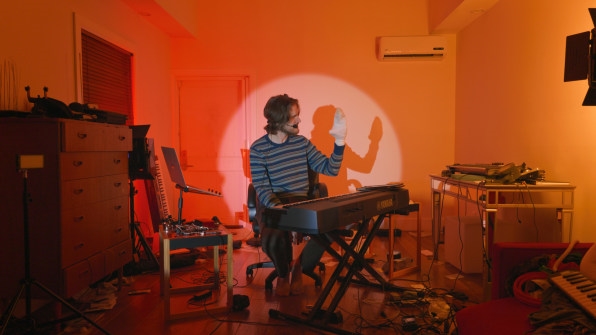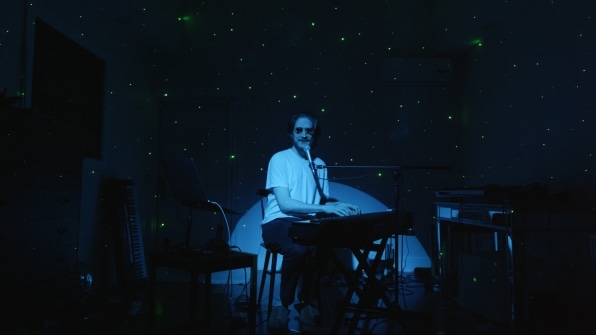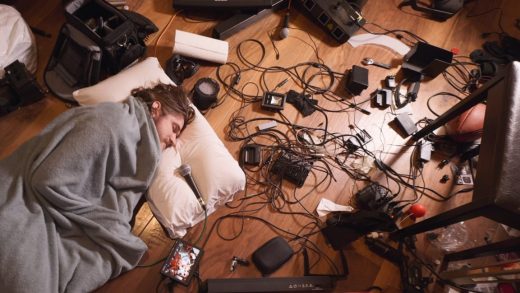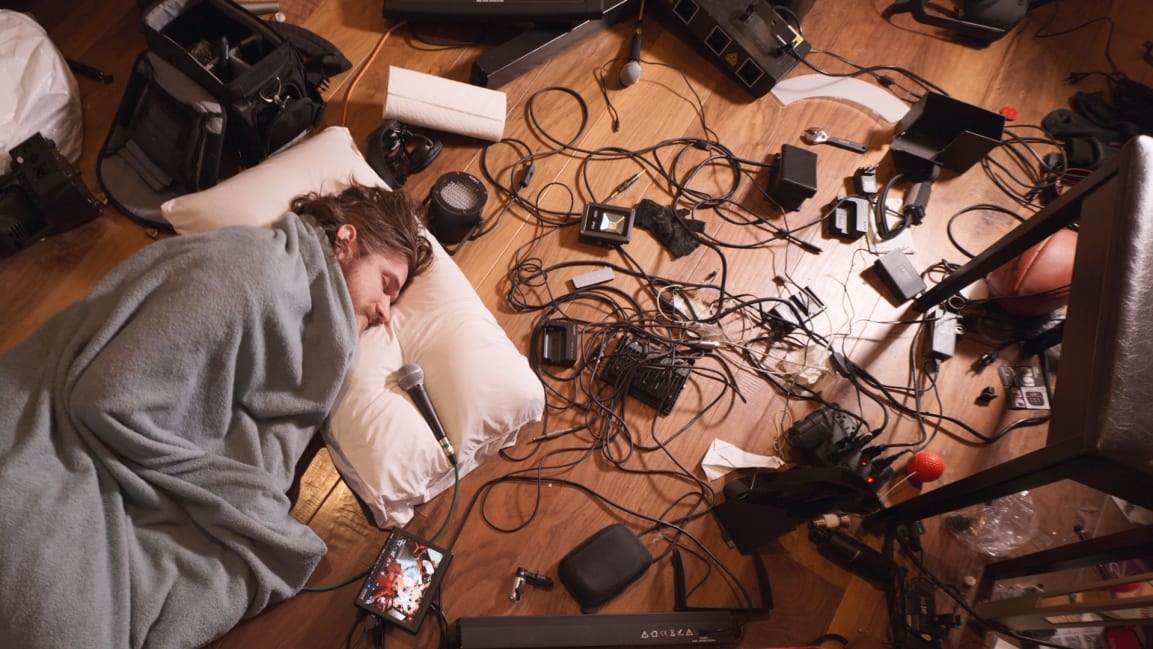Bo Burnham turned his endless quarantine nightmare into a brilliant Netflix special
“If you can live your life without an audience, you should do it,” Bo Burnham said in his 2016 Netflix special, Make Happy.
At the time, the comedian was at a crossroads. Burnham was the unlikely YouTube pioneer who went from taping juvenile, casually offensive songs and jokes in his bedroom to playing packed arenas around the world. He was also increasingly disillusioned by the concept—and cost—of fame, and plagued by panic attacks. If all of that weren’t apparent enough from the material in Make Happy, it should be from what followed: a pivot into filmmaking, with 2018’s critically adored Eighth Grade, and an active focus on pursuing mental health. Coming into 2020 with a hefty role in Promising Young Woman on deck, and a feeling that he was ready to perform live again after a self-imposed five-year hiatus, the world was arguably his oyster. So it must have been quite a shock when the world contracted to the size of an oyster for everyone, and Burnham found himself once again in his bedroom, taping jokes and songs for an audience he has mixed feelings about.
This past April, in Burnham’s first tweet in nearly two years, he announced the imminent arrival of fresh Netflix content.
hi. i made a new special. it was filmed by me, alone, without a crew or an audience, over the course of the past year. it is almost finished. i hope you like it. pic.twitter.com/5a59IUrzVj
— Bo Burnham (@boburnham) April 28, 2021
The tweet didn’t reveal much about what was coming, beyond the fact that he’d made it without an audience, and that, with an unkempt quarantine beard, he now vaguely resembles James McAvoy. As it turns out, Burnham had done what pretty much every creative person wanted to do at some point during the pandemic: make incredible art about it.
Bo Burnham: Inside takes the comedian’s YouTube instincts and imagination, adds the refinement of maturity, and multiplies it by the power of enforced isolation amid the specter of global tragedy. It’s a masterpiece.
Plenty of artists have made projects over the past year inspired by having extra pandemic-mandated time on their hands. Ottessa Moshfegh wrote a novel. Charli XCX cut an album. Taylor Swift cut two of them. Plenty of artists have also made art inspired by the circumstances of the pandemic, including the horror movie, Host; the heist movie, Locked Down; and a terrific episode of Mythic Quest.
Bo Burnham: Inside, however, is both.
It’s a perfectly symbiotic match between form and function, even more so than other COVID-era comedy specials where comedians make jokes in a germ-safe environment about living through a pandemic.
“Welcome to . . . whatever this is,” Burnham says near the beginning of Inside. Throughout the special, though, he always seems surer of what he’s making—a loosely themed collection of darkly funny synth-pop songs and avant-garde one-man sketches—than why he’s making it, his reasons likely evolving over the course of production. Was it to stave off boredom? Was it to stay productive? Was it because, by now, he well and truly cannot live without an audience? Or was it to answer the question he poses in one song: Can a person be funny while stuck in a room? His motivation seems to be a mixture of all of the above and more. As for the question of whether one can be funny while hunkered down alone, Inside answers with a definitive yes.
Burnham’s range of topics spans pandemic habits and tedium that plenty of other comics, talk show hosts, and Twitterers have picked over—FaceTiming with your mom, quarantine horniness—only rendered more interesting by dint of being filtered through Burnham’s unique brain. (Indeed, many have touched on the topic of Basic White Ladies on Instagram before, but it’s hard to imagine what there is left to say after the song on the topic here.) But this type of material is just the surface level of Inside, and Burnham burrows way deeper.

If you stop to seriously think about any one terrible thing for too long—animal cruelty, the illusion of ethical consumption under capitalism—it’s all too easy to spiral into despair. The past 15 months or so, though, have been filled with nothing but time—great amorphous gobs of it—in which to cogitate exclusively on all the terrible things in the world, to the fullest extent, and this is also what Burnham has done.
One of the things he’s obsessed with is the internet, that nebulous information system which asks us all, “Could I interest you in everything all of the time?” Across multiple songs, Burnham muses on how the internet feels more real when the real world goes away, and how we exist more fully in digital spaces when forced into the same physical space for a torturously uncertain length of time. He also reels at the idea that forcing people to reside in digital spaces seems to be the only thing that can drive down mass shootings and the general muck of humanity in America—albeit only temporarily.
Burnham is also interested in how fleeting entertainment is now, with a particular disdain for the word content. His anger at the situation that inspired this art occasionally bleeds over into anger at an audience that might be watching it out of the corner of their eye, while also doing three other things, destined to forget it instantly. Adding these parts in, though, contributes to the holistic vision of an artist at work. The realest parts of Inside, in fact, may be when some bits end and Burnham immediately cuts to himself in the same room, reviewing playback from what we’ve just seen. Here he is, in work mode, but also just sitting there. The artist is present, reflecting an awareness of his art’s utility and limitations right back at the viewer.

In a further act of radical transparency, Burnham occasionally offers increasingly dire mental health check-ins. “I hope this special can maybe do for you what it’s done for me these past couple months,” he says early on, “which is to distract me from wanting to put a bullet in my head with a gun.” Suicidal ideation is a subject he returns to later, with uncommon candor. For Burnham, working on the special is so much a way to grapple with the trauma of the pandemic that he measures time throughout in terms of how long he’s been working on the special, rather than how long the pandemic has driven him inside. (“I thought it would be over by now,” he croons at one point. “But I got a while to go.”)
As an audience member, the excruciating wait to see Burnham finally get out of the room mirrors our own experience this past year of wanting the same for ourselves.
This is the rare comedy special that might make viewers want to see a movie based on the making of it, except it should also feel like they’ve already watched that movie, too. Inside has story, tension, an arc, drama, performance—and also a mesmerizing blur between where the performance ends and an authentic state of existing begins.
However much is performance and however much is self-preservation, either way: Bravo.
(32)



